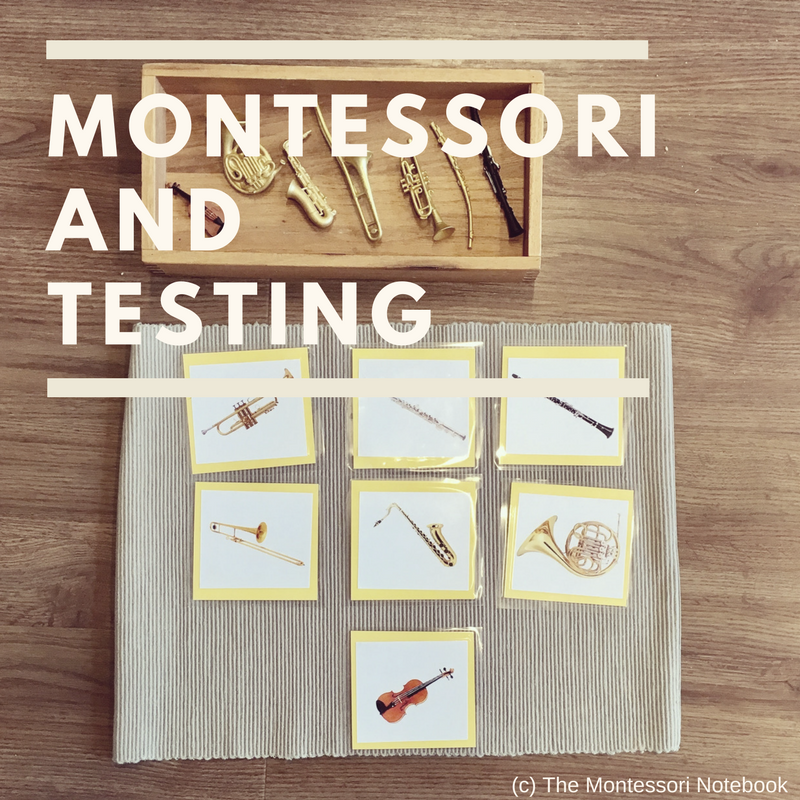Montessori and testing: why do we keep asking “What colour is this?” and other questions to test our child?

So today I’ve been wondering why do we test our child? We keep asking questions like “What colour is this?” and so many others.
I’ve done it too. Before I had any exposure to the Montessori approach, I was unknowingly and constantly testing my son.
“Can you show grandma how you can clap?”
“What sound does the cow make?”
“What’s this? And this? And this?”
I don’t even know why I was asking him these things. Often I’d ask him to perform some new skill or trick on cue, maybe to make myself feel like I was a good parent that my child had learned something new. To show off in some way.
And often the response was nil. He wouldn’t do or say anything at all. I guess he was telling me, “I don’t perform on cue. I’ll clap and wave and ‘moo’ whenever I feel like it.”
Now I see that these types of questions are a kind of test for our child. And there is generally only one correct answer.
So if the answer they give is wrong, we have no other option than to say, “No, that flower is yellow not blue.” (Cue sound from a game show: wa wa wa waaaa)
Not exactly great for building my child’s confidence.
So what about Montessori and testing? I soon learned that Montessori teachers are not fond of testing. They use observation to see where a child is up to, what they are practising, and what they have mastered.
And, interestingly, their observation goes far further than simply what a child knows (their cognitive development) to their social and emotional development and beyond. Here you can find a list of types of things adults can observe.
Therefore, the purpose of tests to see what a child knows – the traditional use of testing – becomes obsolete.
So when would we use a test?
Montessori teachers don’t generally use tests with children under 3 years old. We wait until they are in the conscious stage of learning once they are around 3 years old and when they are super excited to have mastered something and would be delighted to show us.
For example, I observe that they are busy with the colour blue and they are naming everything blue correctly, then I might hold up a blue t-shirt and ask what colour it is, to which they will be delighted to shout “BLUE”.
I’ve often had conversations with my children as they have moved into (non-Montessori) high school where tests are the norm and how tests could possibly be useful. From our very non-scientific discussion, we came up with that tests are good if you know all the answers because they make you feel good about yourself (just like the example of the 3-year-old above being delighted to shout “blue”). Or if they are used to see what hasn’t been taught or learnt so well so this could be practised further until mastered. But, sadly, neither is often the case.
And what could we do instead?
Instead of testing our child, I recommend:
- observing (ie, seeing where they are at)
- playing games (ie, to practise what they are learning), and
- teaching (for example, naming the breeds of dogs or trees or flowers)
In Montessori, we have a lovely expression, “Teach by teaching, not by correcting.” If they make a mistake, rather than correcting them, simply make a mental (or actual) note and, at a later neutral moment, find another way to show them again.
This isn’t meant to make you feel bad. Or make you think that you have broken your child. But maybe this will make you think about how often you unknowingly test your children. And you may just begin to wonder why you do this and if it is helpful to your child.
I’d love to hear what you think!

Simone Davies has more than 20 years’ experience as an AMI Montessori educator. Simone is the author of “The Montessori Toddler” and co-author of “The Montessori Baby” and “The Montessori Child” books, comprehensive guides to raising children in a Montessori way. She currently runs parent-child Montessori classes in Amsterdam at her school Jacaranda Tree Montessori. She also has a popular blog, instagram and podcast “The Montessori Notebook” and is mother to two young adults.